Listeria outbreak: Sandwiches were 'kept warm in ineffective fridges'
- Published
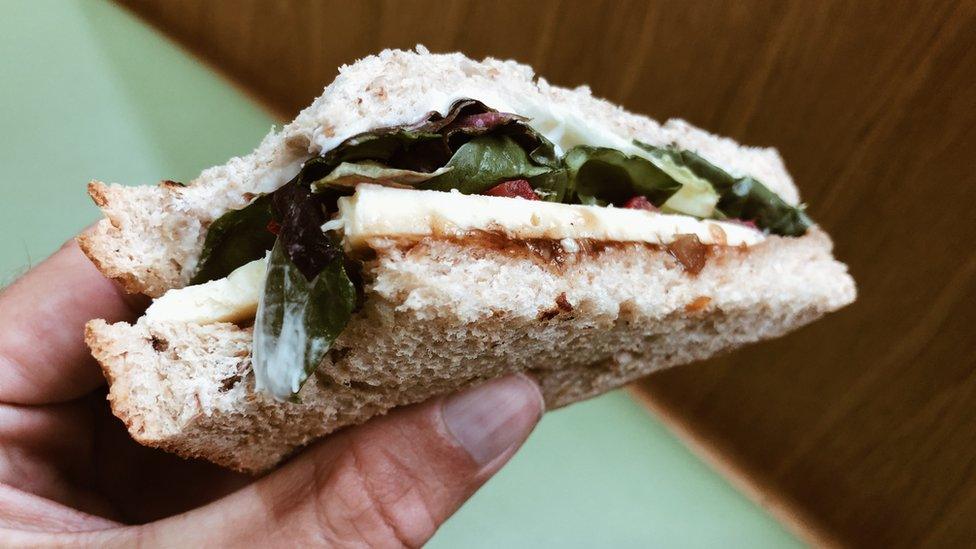
Ian Hitchcock was being treated in hospital for cancer when he ate the sandwich
Sandwiches were kept warm in "ineffective" fridges at a hospital where a patient contracted listeria after eating one and died.
Cancer patient Ian Hitchcock, 52, died on 8 June after eating a pre-packed sandwich while he was being treated at Royal Derby Hospital.
The problems with the fridges were identified on 4 and 5 June when an environmental health officer visited.
The hospital said it has since reviewed how its food is stored on wards.
In a letter to the hospital, food safety inspector Jayne Hassall warned "high risk foods" including sandwiches were being "stored outside temperature control due to ineffective refrigerators".
Some of the sandwiches were found to be at temperatures above 8C, which is an offence under the Food Safety and Hygiene (England) Regulations 2013, external.
"This increases the risk of harmful bacteria growing within the food, especially Listeria Monocytogenes which can grow rapidly in warm temperatures and is an increased risk to vulnerable consumers," Ms Hassall wrote.
Her accompanying report highlighted a particular danger to cancer patients, due to their weakened immune system.
Why was the hospital inspected?
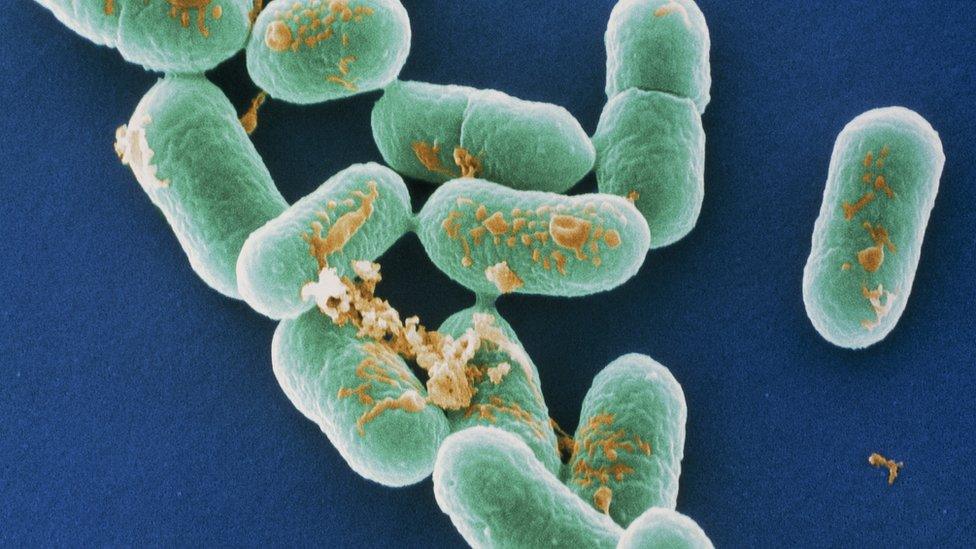
Listeria infection is rare and usually causes a mild illness in healthy people
The inspection was carried out by Derby City Council at the request of the Food Standards Agency.
It was requested because of an ongoing investigation into a listeria outbreak which had at that point resulted in the deaths of three people at other hospital sites.
The death toll has since risen to six and the government has ordered a review of hospital food.
The Good Food Chain, which made the sandwich eaten by Mr Hitchcock, has been linked to the listeria outbreak.
It voluntarily ceased manufacturing on 5 June and went into liquidation at the end of the month.
What did the inspection report say?
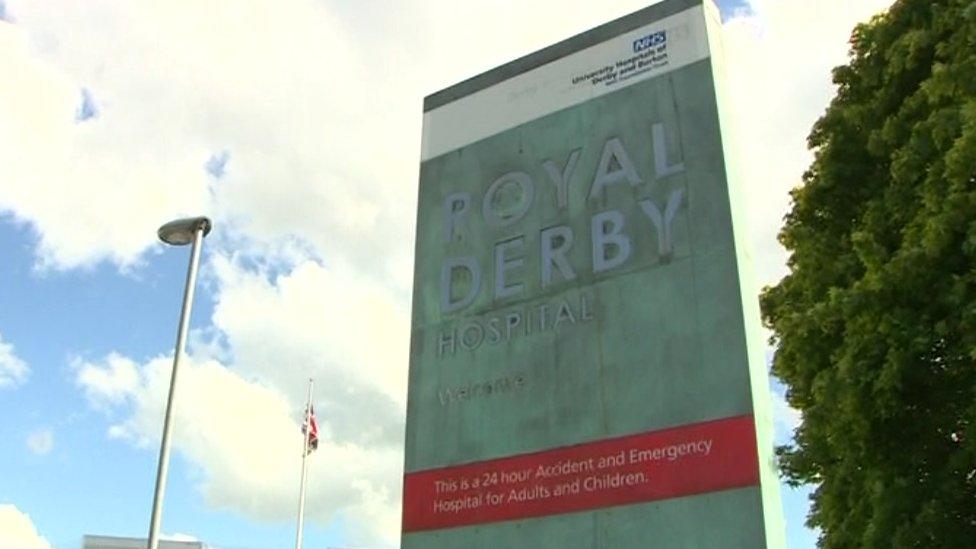
Ian Hitchcock was being treated at the Royal Derby Hospital
The report said high risk foods such as sandwiches and prepared salads should be stored at 8C or below. However, the inspector found three fridges where the air temperature was higher than 8C. One of these was on a ward and two were in kitchens.
When the sandwiches were tested they were found to be as high as 13.1C (cheese sandwich), 11.4 C (tuna and mayonnaise) and 9.4 C (gammon ham).
The inspector wrote: "I am concerned as food poisoning bacteria, especially Listeria Monocytogenes, can rapidly grow at warm temperatures, such as the temperatures we found these sandwiches to be stored at.
"Vulnerable groups such as individuals with a weakened immune system such as cancer patients, patients undergoing immunosuppressive treatments, pregnant women and the elderly are more susceptible to developing infections as a result of Listeria bacteria."
She told the hospital it must either replace or repair its fridges if they were not able to operate at 8C or below. She recommended the temperature be set to 5C, saying this was "good practice" for health care organisations.
How did the patient die?
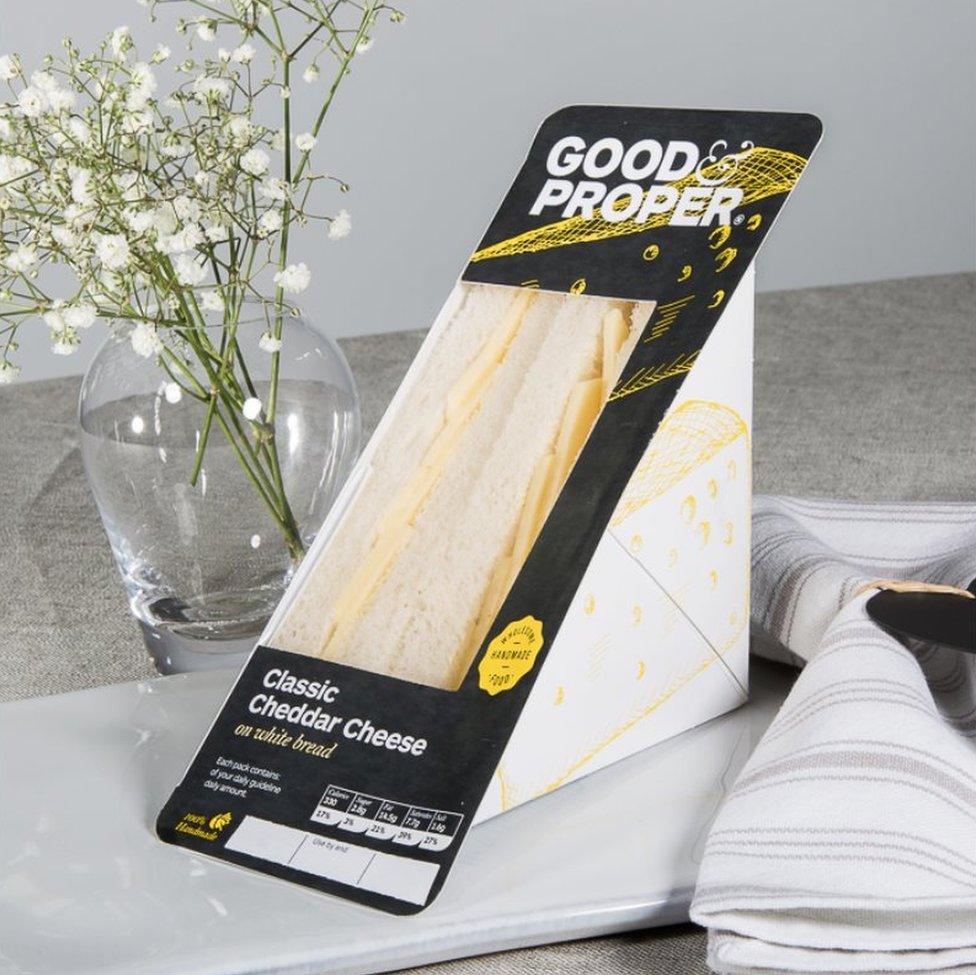
The Good Food Chain sold sandwiches under the name Good & Proper
Mr Hitchcock, from Crich in Derbyshire, was being treated at the Royal Derby Hospital after being diagnosed with liver cancer in May.
A pre-prepared sandwich made by the Good Food Chain was eaten at some point during his stay. His family believed the sandwich was contaminated.
He died on 8 June after being transferred to Nottingham City Hospital, and "systemic listeria infection" was found to be a contributing factor in his death.
His full cause of death has been recorded by the coroner as "1a liver failure" and "1b metastatic sigmoid adenocarcinoma and systemic listeria infection".
The hospital has not given any details on where Mr Hitchcock's sandwich was stored, but this is expected to be explored when a full inquest is held into Mr Hitchcock's death.
What has the hospital said?
The hospital said it could not comment specifically on Mr Hitchcock's care until the inquest into his death had concluded.
Executive chief nurse Cathy Winfield said: "As you would expect, regardless of the fact that the suspected source of the listeria was an external sandwich provider, our response was to review the facilities for patient food storage across our hospitals.
"This review, in conjunction with the council's environmental health officers and independent reviewers commissioned by ourselves, found a number of improvements that should be made.
"This includes tighter restrictions on the storage of sandwiches and other high risk foods, revised ward kitchen temperature monitoring and new equipment, including fridges.
"We take our responsibility for food safety and hygiene very seriously and have made improvements in all of these areas."

Follow BBC East Midlands on Facebook, external, Twitter, external, or Instagram, external. Send your story ideas to eastmidsnews@bbc.co.uk, external.
- Published20 September 2019
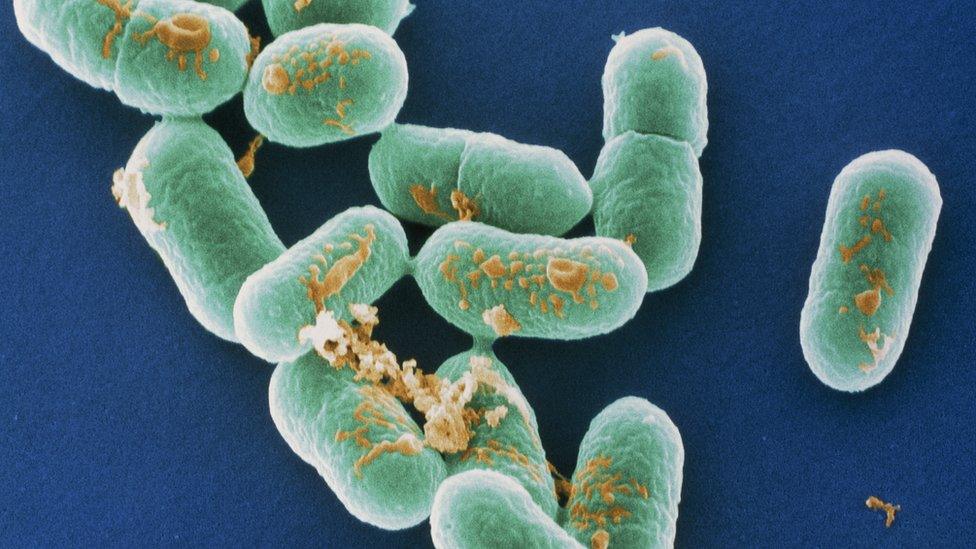
- Published1 August 2019
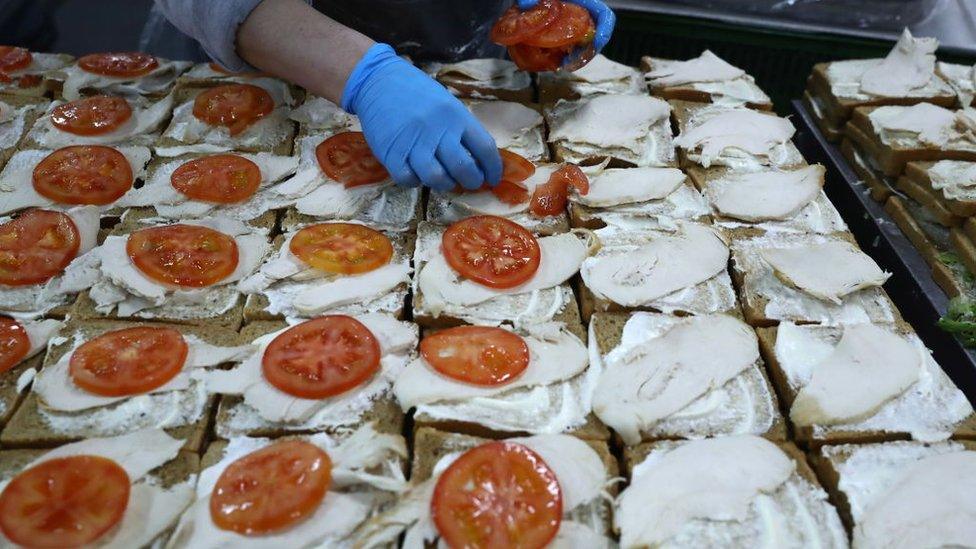
- Published21 June 2019

- Published20 June 2019
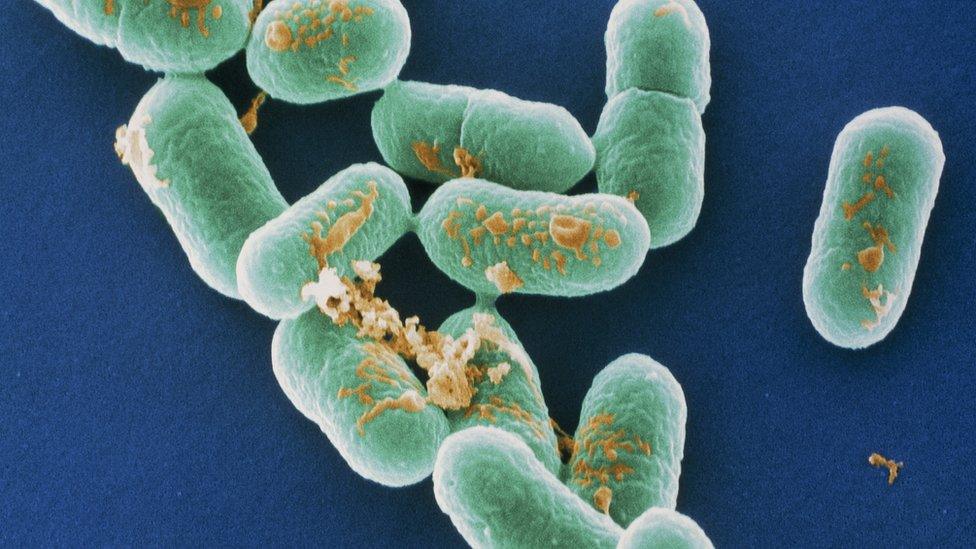
- Published19 June 2019
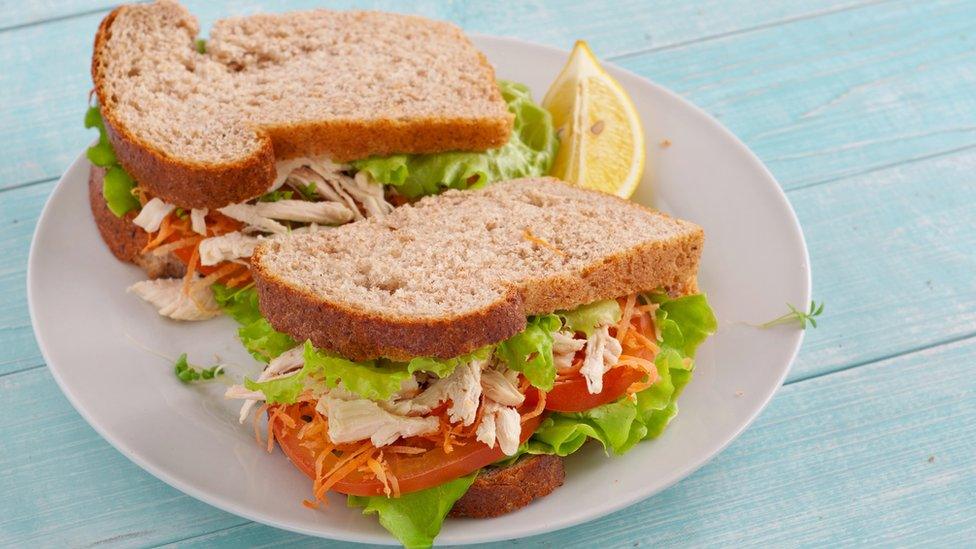
- Published17 June 2019

- Published15 June 2019
